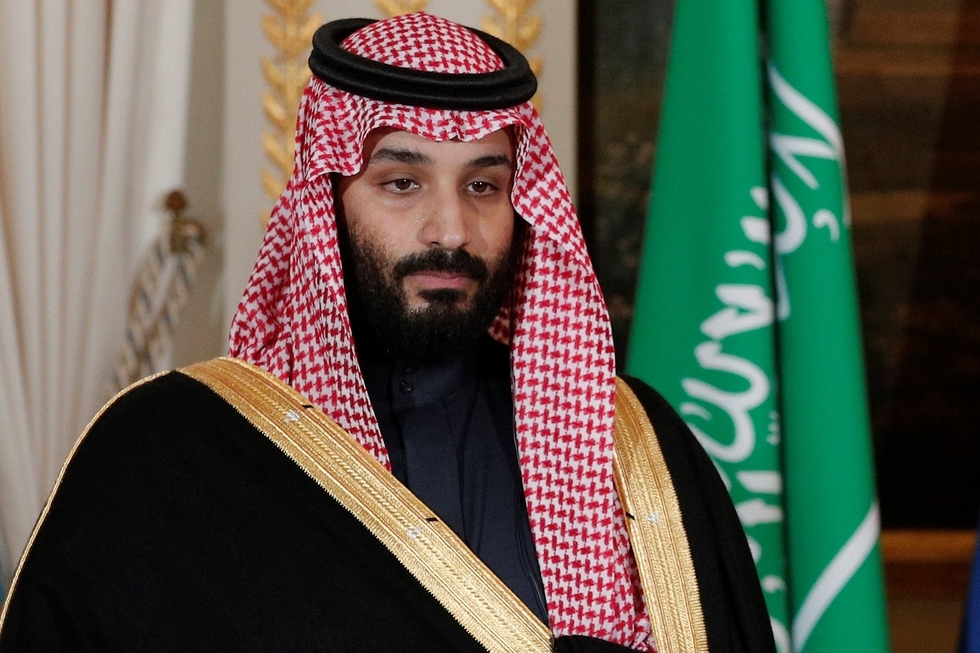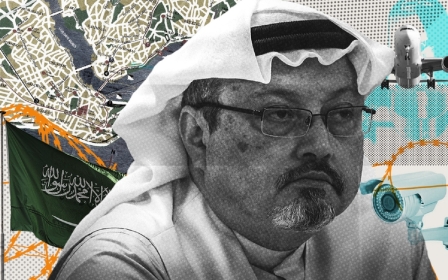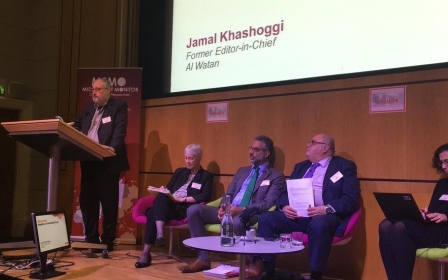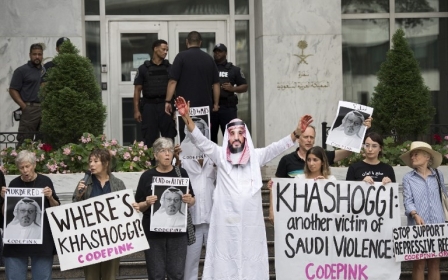Can Mohammed bin Salman survive Khashoggi's assassination?

The United States' special relationship with the royal family of Al Saud has long been controversial: an ultraconservative, oil-fuelled kingdom run by a single family through medieval, draconian laws, disregarding basic human rights.
Yet, as Washington's client, Saudi Arabia has helped consecutive US administrations to balance US national interests in the region – often at the expense of American values.
Despite public outcries over the kingdom's involvement in 9/11, public executions, women banned from driving and other human rights abuses, nothing has put the relationship between Washington and Riyadh to the test like the Khashoggi affair has over the past two weeks.
MBS' security paranoia
Jamal Khashoggi, a journalist and confidant of previous administrations in Riyadh, had left the kingdom in the summer of 2017 to go into self-imposed exile to Washington, citing increased repression against freedom of speech under the new crown prince, Mohammed bin Salman (MBS), as a major reason.
As a columnist of the Washington Post he rose to become one of the fiercest critics of the young and inexperienced prince, who had meanwhile embarked on a PR campaign in the West to sell his authoritarian and repressive clampdown at home as a reform effort.
In an autocratic regime where all power is monopolised in the hands of a micromanaging crown prince, there is no room for rogue elements that could plan and execute a complex operation such as this without the authorisation from MBS himself
Accompanied by investment pledges worth billions of dollars and carefully constructed reform narratives, MBS was able to appeal to Western policymakers, journalists and business moguls who were blinded by utopian and megalomaniac plans to bring the medieval kingdom into the 21st century.
Khashoggi, although never calling for regime change in Riyadh, tried to ground Western euphoria about the "new Arab reformer".
Under the premise of a crackdown on corruption, the crown prince locked up scores of dissidents, activists, clerics, businessmen and other potential challengers to his rule within the family – while the VIPs received the five-star treatment in the now infamous Ritz Carlton in Riyadh, most victims of MBS's regime security paranoia vanished amid mass incarcerations and forced disappearances.
When Khashoggi entered the consulate in Istanbul on 2 October he knew that he was taking a risk, but contacts in the kingdom had given him a false sense of security in suggesting that the MBS regime was not after him. Little did he know that MBS's henchmen, the infamous crew of 15, complete with forensic experts, were awaiting him.
Incriminating evidence
Although absurd and contradicting conspiracy theories put out by the kingdom have muddied the waters around the details of Khashoggi's death in the consulate, the evidence incriminates not just Saudi Arabia at large but MBS in particular.
In a highly centralised autocratic regime where all power is monopolised in the hands of a micromanaging crown prince, there is no room for rogue elements that could plan and execute a complex operation such as this without the authorisation from MBS himself.
It is, therefore, not surprising that the public outcry across the world has been deafening. The bipartisan response by think-tankers, journalists and policymakers in the West has been overwhelming in calling on MBS's strongest backer in the West, Donald Trump, to sanction the MBS regime.
While politicians in Washington on both sides of the aisle are ready to sever relations with Riyadh, Trump has been hesitant to call MBS out. But continuous leaks of evidence incriminating the crown prince will keep up the pressure from members of Congress and senators, leaving the Trump administration with no choice but to come up with face-saving measures showing the world that the impulsive and toxic young leader of the kingdom cannot get away with murder.
US Secretsry of State Mike Pompeo's visit to Riyadh this week was all about helping the struggling MBS to construct a narrative that would free him of any criminal charges while demonstrating to the world that his omnipotency will be curtailed moving forward.
A possible half-hearted measure that would satisfy both Trump and MBS might be to appoint MBS's brother Khalid, currently Saudi ambassador to the US, as deputy crown prince, relieving Mohammed of some of his responsibilities.
However, whether this would be enough to appease influential congressmen, like Lindsey Graham, who said on prime-time television this week that he would not deal with Saudi Arabia as long as MBS remains in power, is highly doubtful.
A liability not a saviour
The other important question is how will the Al Sauds react to mounting international pressure? The Al Sauds, who have traditionally run the kingdom as a family business, initially succumbed to MBS's purge in the hope that his "reform effort" might help set the kingdom on a path of long-desired economic growth and diversification.
But now, it seems, the king's son has become more of a liability than a saviour to the family's interests. Yet, amid his consolidation of power, the crown prince has ensured that any potential challenger from among his cousins or uncles would be disowned, disempowered and if necessary put under house arrest.
Princes long groomed for succession, such as Mohammad bin Nayef or Muqrin bin Abdulaziz Al Saud, appear to be powerless and under constant surveillance by regime security services directly controlled by MBS.
Any mechanism for consensual decision-making or crisis management within the family has been destroyed by the crown prince, who replaced experienced statesmen and diplomats with inexperienced millennials whose only qualification appears to be unconditional loyalty to the Salman branch of the family.
At this point, it seems, the MBS regime can only be overthrown by a violent coup based on a conspiracy involving not just the old guard of the family but operational and strategic-level commanders of the security services.
Consequently, the West in general, and the United States in particular, might be best advised to embark on a transactional re-education strategy, forcing the crown prince to change his ways using coercion and accommodation. For that to work, particularly the Trump administration must be ready to impose sanctions and potentially do without the $110bn worth of Saudi investment package for the United States.
Aside from the fact that the kingdom's dire financial situation puts a huge question mark over this utopian figure, the willingness of both Democrats and Republicans to sell out on fundamental American values in the Khashoggi case is surprisingly low considering how quiet American lawmakers have been over MBS' inhumane war in Yemen since 2015, his blockade of Qatar since 2017, and the kidnapping of Lebanese Prime Minister Saad Hariri in November 2017.
As someone suggested to me in Washington this week, Jamal Khashoggi might have been at his most transformational in his martyrdom.
- Andreas Krieg is an assistant professor at the Defence Studies Department of King's College London and a strategic risk consultant working for governmental and commercial clients in the Middle East. He recently published a book titled Socio-Political Order and Security in the Arab World.
The views expressed in this article belong to the author and do not necessarily reflect the editorial policy of Middle East Eye.
Photo: A profile of Saudi Crown Prince Mohammed bin Salman (AFP)
This article is available in French on Middle East Eye French edition.
Middle East Eye propose une couverture et une analyse indépendantes et incomparables du Moyen-Orient, de l’Afrique du Nord et d’autres régions du monde. Pour en savoir plus sur la reprise de ce contenu et les frais qui s’appliquent, veuillez remplir ce formulaire [en anglais]. Pour en savoir plus sur MEE, cliquez ici [en anglais].





